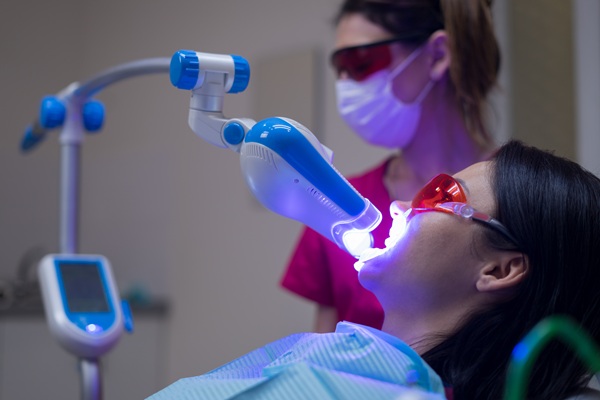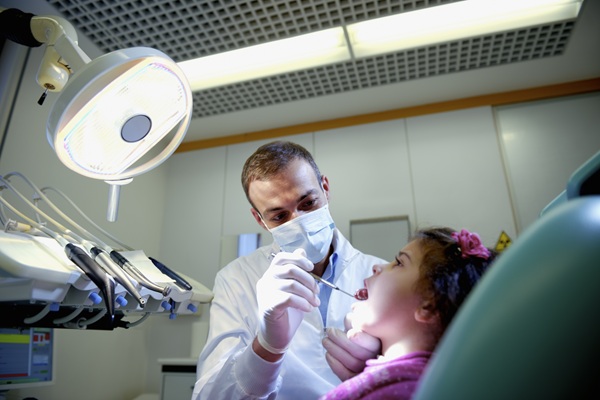When Is Dental Sedation Recommended?

There is some fear around the use of dental sedation and sedation use in general, but there are instances when it is necessary. Understanding the reasons why dentists recommend and use sedation can put people at ease. It can also help an individual have informed conversations with a dentist about when such a treatment may be necessary.
Situations when dental sedation is used
There are many instances when dentists may use sedation. Often, the dentist will discuss the treatment options and the associated details with a patient before beginning any procedure. Sedation is part of those details. As such, it is important for people to understand how it can be used to make a dental visit easier for patients, dentists and staff.
1. To calm people down
There is a great deal of fear associated with visiting the dentist, whether it is due to uncertainty or bad previous experiences. This can affect people of all ages, and dentists are acutely aware that many people are nervous. Sometimes, the wisest course of action is to use dental sedation as a way to calm patients down so the dentist can safely perform the necessary work. A dentist can use multiple forms of sedation, but in this situation, a mild form is usually used that simply helps a patient relax but not fall asleep. This is especially helpful in children and those with special needs.
2. To perform procedures
Patients are often tense and stressed when undergoing a dental process. Sometimes, certain procedures can be done more easily if the patient is unconscious or relaxed. This is especially true for tooth extractions, such as wisdom teeth removal. To complete the work safely and accurately, a dentist may suggest dental sedation although the type may be based on the individual and the procedure.
For people who have extreme anxiety about dental office visits and any of the work performed, asking the dentist about sedation is a good idea. The dentist can listen to a patient’s worries and decide whether sedation is the best option.
3. To lessen pain
A dentist may use sedation to decrease the amount of pain a patient may feel during a procedure. For example, full sedation is usually used for root canals while local anesthesia is used for cavities. The dentist waits for the sedation or anesthesia to take effect before beginning any procedure. In instances where it is used for cavities, additional local anesthesia can be applied as necessary. Sedation for surgeries is recommended to keep a patient relaxed, reduce the pain and allow the dentist to safely perform the operation although the main benefit a patient receives is the absence of pain.
Conclusion
There are instances when dental sedation is recommended by dentists to reduce pain, perform surgeries and help patients relax during a visit. A dentist can thoroughly discuss the various options and uses of each kind of sedation if it is something a person is worried about.
Request an appointment here: https://www.emersondental.com or call Emerson Dental Associates at (201) 620-9998 for an appointment in our Emerson office.
Check out what others are saying about our services on Yelp: Read our Yelp reviews.
Recent Posts
Laser dentistry is a modern practice used for a number of dental procedures, ranging from root canals to oral cancer screenings. One of the most common laser dentistry procedures is gum reshaping, which has grown in popularity for both cosmetic and restorative purposes. When gum reshaping is chosen for cosmetic purposes, patients are typically hoping…
Many parents often forget the need to get a kid friendly dentist when choosing a dentist for their children. A kid friendly dentist offers additional benefits that are not available from a regular dentist's office. Some might also get confused when they encounter pediatric dentists and wonder if there is any difference. Pediatric dentists also…
There are benefits to choosing an experienced implant dentist over one who is relatively new in the profession. Dental implants require a more complex process that involves several steps, and choosing the right implant dentist may help make the process more convenient, less invasive, and safer.It is helpful to learn more about dental implants, how…
Are you considering implant supported dentures? This hybrid tooth replacement option is one that provides patients with stability and a natural-looking smile. Implant supported dentures can be used to replace teeth on the upper or lower arch. In the event that the lower arch of teeth needs to be replaced, patients are often curious about…


